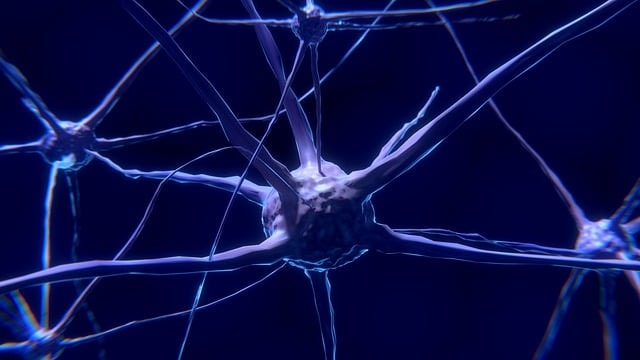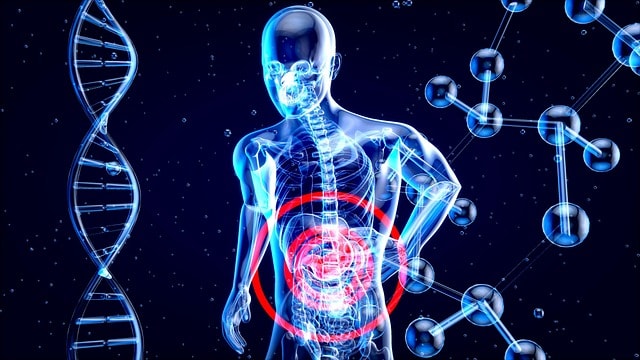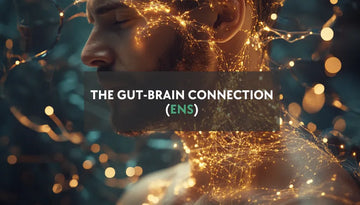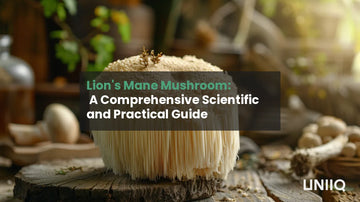The phrase “a gut feeling” might be more than just a common metaphor. Modern medicine, alongside emerging research, has discovered that the brain (CNS) and the gut (ENS) are connected, through a two-way communication system. Mood regulation, digestion, Sleep and immune function are just some of the factors affected by this intriguing bidirectional relationship.
By gaining a deeper understanding of this fascinating relationship, you can learn strategies to improve this connection. This article will explore the Gut brain axis, how it affects our lives and how we can use it to our advantage!

How does it work?
The intricate relationship between the central nervous system (Brain/CNS) and the enteric nervous system (Gut/ENS) is more commonly known as the gut-brain axis. The connection relies on different functions of the body, which essentially facilitates for the communication of these two systems:
-
Neural connections: There are strong and vast neural connections between the ENS and CNS, with the Vagus nerve serving as the primary neural conduit. This nerve allows for signal transmission between the two systems.
-
Hormonal Regulation: Several important hormones have strong connections with both the CNS and ENS, thus binding them together. For instance, Ghrelin, which is produced in the stomach to signal the hypothalamus (a part of the brain) to stimulate appet
ite/hunger. The release of this hormone even increases when you see/think about a food you love!
-
Neurotransmitters: Our gut microbiome produces several neurotransmitters, which affect mood, cognition and energy levels. Some of these are Serotonin, Dopamine and GABA. Since the gut produces around 90 % of the body´s serotonin (Happiness transmitter) it´s natural that it will have a strong impact on our mood and CNS (Cleveland Clinic, Healthline). That said most of this serotonin does not cross the BBB (Blood-brain barrier), making it less impactful, yet still important for the body!
-
Immune system modulation: The gut surprisingly enough, houses around 70 % of the body´s immune cells. This is important because chronic inflammation can negatively affect both the CNS and ENS.
What is its function and purpose?
Now that we understand the basics of how the CNS and ENS cooperate, the question arises: What role does it play?
-
Digestion: There are countless signals between your gut and your brain constantly exchanging, when you´re hungry and full. These signals also communicate food preferences, intolerances and you guessed it, Cravings.
-
Mood and Emotion: Human emotions such as stress or anxiety can impact our gut. This can trigger stomach irritation, discomfort and worsen functional conditions such as IBS (Inflammatory bowel syndrome).
-
Pain and immune system: The Gut-brain axis communicates when you experience pain, injury or inflammation. The gut is even capable of influencing your sensitivity to pain.
Additionally, the Gut-brain axis has been shown to have significant impact on gastrointestinal functional disorders like IBS. Disruptions in the GB axis, is thought to have a major role in worsening of IBS symptoms. In fact, a study conducted in 2019 (“Gut Microbiota’s Role in Irritable Bowel Syndrome”) found a significant link between gut microbiota disbalances and IBS symptoms.
How to nurture this relationship for your health?
Nurturing the gut brain axis can be very beneficial for our overall health, as it influences factors like, mood, digestion and immune function. A balanced, healthy and rich gut will reward us by supporting brain health and thus improving communication in this axis further. Let´s now look at some of the lifestyle changes we can incorporate to do exactly that:
Herbal supplementation:
Herbal supplementation has several effects which can improve the GB axis. Take Ashwagandha (KSM-66), it has cortisol (stress hormone) lowering properties which can protect the gut. The herb has also been observed increasing GABA activity which in turn can calm the nervous system, reducing anxiety (Choudhary et al., 2021). You can read more about Ashwagandha and its numerous benefits in our article.
Rhodiola Rosea is another herbal supplement, which can increase both dopamine and serotonin, which are responsible for mood control and focus. It also acts as an anti-inflammatory agent, which is beneficial for the gut (Chiavaroli et al., 2024)
Improve gut Microbiome:
A diverse and healthy gut microbiome is the key to strengthening the GB axis. As we know it is the microbiome which produces the key neurotransmitters that account for a lot of the communication between the gut and the brain. Too enhance our microbiome there are two types of food we need to consume:
-
Probiotics: (Live beneficial bacteria) These are live bacteria found in fermented foods like: yogurt, kefir, kimchi and sauerkraut. When probiotics foods are consumed in a healthy diet, they can help restore gut balance, especially after stressful periods and use of antibiotics. They also improve digestion, by helping break down food and simultaneously prevent bloating.
-
Prebiotics: (Fiber for the good bacteria) prebiotics can be found in fiber rich foods that feed the probiotics. They are crucial for the probiotics, so that they can thrive and multiply in our gut, increasing their beneficial effects. Prebiotics are found in several food groups like: Fruits, legumes, whole grains and even certain vegetables.
When probiotics and prebiotics are consumed regularly, they work together and provide synergistic benefits. An example of a meal containing both could be as simple as yoghurt with fruits.

Avoiding gut disruptors:
Another effective method to promote a healthy gut brain axis, is to avoid certain gut disruptors:
-
Ultra processed foods: These types of food, promote harmful gut bacteria and simultaneously reduces the diversity of our gut microbiome.
-
Excessive use of NSAIDS (Aspirin, Ibuprofen) and Antibiotics: Whilst both medications are necessary for certain conditions, overuse can harm even beneficial bacteria.
-
Chronic stress: When our body goes through stress, it triggers cortisol release from the adrenal glands. Cortisol (Stress hormone) is known to weaken the gut barrier and harm our diverse gut microbiome.
-
Poor sleep management: Poor sleep management causes a disruption in the circadian rhythm (Body’s inner clock). The circadian rhythm is important for our gut motility and digestion. A study in 2020 titled: “Disruption of Circadian Rhythms and Gut Motility” has in fact linked poor sleep management and thus disruption of the circadian rhythm to IBS flare ups.
Conclusion:
The gut-brain axis (GB axis) plays a crucial role in digestion, mood, immunity, and overall well-being. Strengthening this connection involves maintaining a diverse gut microbiome through probiotics and prebiotics, managing stress, prioritizing sleep, and avoiding gut disruptors like ultra-processed foods, excessive antibiotics, and NSAIDs.
Herbal supplements like Ashwagandha and Rhodiola Rosea can further support neurotransmitter balance and reduce inflammation. Implementing these small yet impactful lifestyle changes can enhance gut-brain communication, leading to improved physical and mental health!








